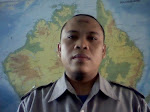ARTICLE 1:
(a) All human beings form one family
whose members are united by their subordination to Allah and descent from Adam.
All men are equal in terms of basic human dignity and basic obligations and
responsibilities, without any discrimination on the basis of race, colour,
language, belief, sex, religion, political affiliation, social status or other
considerations. The true religion is the guarantee for enhancing such dignity
along the path to human integrity.
(b) All human beings are Allah's
subjects, and the most loved by Him are those who are most beneficial to His
subjects, and no one has superiority over another except on the basis of piety
and good deeds.
ARTICLE 2:
(a) Life is a God-given gift and the
right to life is guaranteed to every human being. It is the duty of
individuals, societies and states to safeguard this right against any
violation, and it is prohibited to take away life except for a shari'ah
prescribed reason.
(b) It is forbidden to resort to any
means which could result in the genocidal annihilation of mankind.
(c) The preservation of human life
throughout the term of time willed by Allah is a duty prescribed by Shari'ah.
(d) Safety from bodily harm is a
guaranteed right. It is the duty of the state to safeguard it, and it is
prohibited to breach it without a Shari'ah-prescribed reason.
ARTICLE 3:
(a) In the event of the use of force
and in case of armed conflict, it is not permissible to kill non-belligerents
such as old men, women and children. The wounded and the sick shall have the
right to medical treatment; and prisoners of war shall have the right to be
fed, sheltered and clothed. It is prohibited to mutilate or dismember dead
bodies. It is required to exchange prisoners of war and to arrange visits or
reunions of families separated by circumstances of war.
(b) It is prohibited to cut down
trees, to destroy crops or livestock, to destroy the enemy's civilian buildings
and installations by shelling, blasting or any other means.
ARTICLE 4:
Every human being is entitled to
human sanctity and the protection of one's good name and honour during one's
life and after one's death. The state and the society shall protect one's body
and burial place from desecration.
ARTICLE 5:
(a) The family is the foundation of
society, and marriage is the basis of making a family. Men and women have the
right to marriage, and no restrictions stemming from race, colour or nationality
shall prevent them from exercising this right.
(b) The society and the State shall
remove all obstacles to marriage and facilitate it, and shall protect the
family and safeguard its welfare.
ARTICLE 6:
(a) Woman is equal to man in human
dignity, and has her own rights to enjoy as well as duties to perform, and has
her own civil entity and financial independence, and the right to retain her
name and lineage.
(b) The husband is responsible for
the maintenance and welfare of the family.
ARTICLE 7:
(a) As of the moment of birth, every
child has rights due from the parents, the society and the state to be accorded
proper nursing, education and material, hygienic and moral care. Both the fetus
and the mother must be safeguarded and accorded special care.
(b) Parents and those in such like
capacity have the right to choose the type of education they desire for their
children, provided they take into consideration the interest and future of the
children in accordance with ethical values and the principles of the Shari'ah.
(c) Both parents are entitled to
certain rights from their children, and relatives are entitled to rights from
their kin, in accordance with the tenets of the shari'ah.



0 komentar:
Posting Komentar